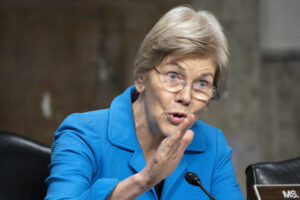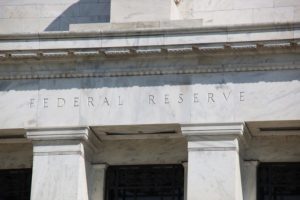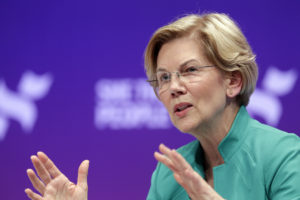Reinventing Banking: From Russia to Iceland to Ecuador
These transformations, current and proposed, are constructive steps toward streamlining the banking system, eliminating the risks that have devastated individuals and governments, democratizing money, and promoting sustainable and prosperous economies. Everyman Films Inc / CC BY 2.0
1
2
Everyman Films Inc / CC BY 2.0
1
2
Global developments in finance and geopolitics are prompting a rethinking of the structure of banking and of the nature of money itself. Among other interesting news items:
- In Russia, vulnerability to Western sanctions has led to proposals for a banking system that is not only independent of the West but is based on different design principles.
- In Iceland, the booms and busts culminating in the banking crisis of 2008-09 have prompted lawmakers to consider a plan to remove the power to create money from private banks.
- In Ireland, Iceland and the UK, a recession-induced shortage of local credit has prompted proposals for a system of public interest banks on the model of the Sparkassen of Germany.
- In Ecuador, the central bank is responding to a shortage of US dollars (the official Ecuadorian currency) by issuing digital dollars through accounts to which everyone has access, effectively making it a bank of the people.
Developments in Russia
In a November 2015 article titled “Russia Debates Unorthodox Orthodox Financial Alternative,” William Engdahl writes:
A significant debate is underway in Russia since imposition of western financial sanctions on Russian banks and corporations in 2014. It’s about a proposal presented by the Moscow Patriarchate of the Orthodox Church. The proposal, which resembles Islamic interest-free banking models in many respects, was first unveiled in December 2014 at the depth of the Ruble crisis and oil price free-fall. This August the idea received a huge boost from the endorsement of the Russian Chamber of Commerce and Industry. It could change history for the better depending on what is done and where it further leads.
Engdahl notes that the financial sanctions launched by the US Treasury in 2014 have forced a critical rethinking among Russian intellectuals and officials. Like China, Russia has developed an internal Russian version of SWIFT Interbank payments; and it is now considering a plan to restructure Russia’s banking system. Engdahl writes:
Much as with Islamic banking models that ban usury, the Orthodox Financial System would not allow interest charges on loans. Participants of the system share risks, profits and losses. Speculative behavior is prohibited . . . . There would be a new low-risk bank or credit organization that controls all transactions, and investment funds or companies that source investors and mediate project financing. . . . Priority would be ensuring financing of the real sector of the economy . . . .
On September 15, 2013, Sergei Glazyev, one of Vladimir Putin’s economic advisers, presented a a series of economic proposals to the Presidential Russian Security Council that also suggest radical change is on the horizon. The plan is aimed at reducing vulnerability to western sanctions and achieving long-term growth and economic sovereignty.
Particularly interesting is a proposal to provide targeted lending for businesses and industries by providing them with low-interest loans at 1-4 percent, financed through the central bank with quantitative easing (digital money creation). The proposal is to issue 20 trillion rubles for this purpose over a five year period. Using quantitative easing for economic development mirrors the proposal of UK Labour Leader Jeremy Corbyn for “quantitative easing for people.”
William Engdahl concludes that Russia is in “a fascinating process of rethinking every aspect of her national economic survival because of the reality of the western attacks,” one that “could produce a very healthy transformation away from the deadly defects” of the current banking model.
Iceland’s Radical Money Plan
Iceland, too, is looking at a radical transformation of its money system, after suffering the crushing boom/bust cycle of the private banking model that bankrupted its largest banks in 2008. According to a March 2015 article in the UK Telegraph:
Iceland’s government is considering a revolutionary monetary proposal – removing the power of commercial banks to create money and handing it to the central bank. The proposal, which would be a turnaround in the history of modern finance, was part of a report written by a lawmaker from the ruling centrist Progress Party, Frosti Sigurjonsson, entitled “A better monetary system for Iceland”.
“The findings will be an important contribution to the upcoming discussion, here and elsewhere, on money creation and monetary policy,” Prime Minister Sigmundur David Gunnlaugsson said. The report, commissioned by the premier, is aimed at putting an end to a monetary system in place through a slew of financial crises, including the latest one in 2008.
Under this “Sovereign Money” proposal, the country’s central bank would become the only creator of money. Banks would continue to manage accounts and payments and would serve as intermediaries between savers and lenders. The proposal is a variant of the Chicago Plan promoted by Kumhof and Benes of the IMF.
Dig, Root, GrowThis year, we’re all on shaky ground, and the need for independent journalism has never been greater. A new administration is openly attacking free press — and the stakes couldn’t be higher.
Your support is more than a donation. It helps us dig deeper into hidden truths, root out corruption and misinformation, and grow an informed, resilient community.
Independent journalism like Truthdig doesn't just report the news — it helps cultivate a better future.
Your tax-deductible gift powers fearless reporting and uncompromising analysis. Together, we can protect democracy and expose the stories that must be told.
This spring, stand with our journalists.
Dig. Root. Grow. Cultivate a better future.
Donate today.









You need to be a supporter to comment.
There are currently no responses to this article.
Be the first to respond.